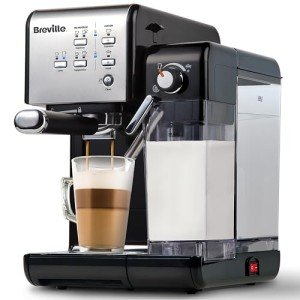Dual Boiler Espresso Machines: The Good, The Bad, And The Ugly
Understanding Dual Boiler Espresso Machines: A Comprehensive Guide
Espresso is an art as much as it is a science. For coffee lovers and baristas alike, attaining the best shot of espresso demands precision and control over brewing variables. Among the most effective ways to achieve this precision is through the use of dual boiler espresso machines. This short article looks into the functionality, benefits, and considerations of dual boiler espresso machines for both beginners and experienced coffee enthusiasts.
What is a Dual Boiler Espresso Machine?
A dual boiler espresso machine includes two different boilers: one for developing espresso and the other for steaming milk. This style permits the user to brew coffee and steam milk concurrently, attaining optimal temperature control for both processes. This is important for producing lattes, coffees, and macchiatos, where both ingredients are important.
Table 1: Key Components of Dual Boiler Espresso Machines
Component
Function
Espresso Boiler
Heats water to the perfect brewing temperature (around 190 ° F)
. Steam Boiler
Heats water to a higher temperature (around 250 ° F) for steaming milk.
PID Controller
Controls the temperature of the boilers for precision brewing.
Group Head
Where the coffee premises sit and warm water passes through.
Steam Wand
Provides steam to froth milk.
Advantages of Dual Boiler Espresso Machines
1. Simultaneous Brewing and Steaming
The most substantial advantage of dual boiler espresso machines is the ability to brew espresso and steam milk at the very same time. Espresso Machines Under £200 is particularly useful in busy environments, such as cafes, where speed and quality are paramount.
2. Constant Temperature Control
Dual boiler machines typically come with innovative PID (Proportional Integral Derivative) controllers that maintain a constant temperature throughout the brewing procedure. Consistency is necessary in espresso making to ensure the very best extraction, thus boosting flavor and aroma.
3. Personalization and Versatility
With 2 separate boilers, users can tailor the temperature settings for both espresso developing and milk steaming. This means different kinds of coffee, such as lighter or darker roasts, can be prepared perfectly to suit specific taste profiles.
4. Ideal for Advanced Techniques
For those thinking about latte art or other sophisticated techniques, a dual boiler espresso machine supplies the flexibility to deal with various milk textures while likewise drawing out espresso. This versatility makes it an appealing option for baristas who desire to refine their skills.
5. Durability and Durability
Many dual boiler machines are constructed with high-quality materials developed for longevity. They are frequently made of stainless steel and function resilient parts, making them a rewarding financial investment for anybody major about coffee.
Disadvantages of Dual Boiler Espresso Machines
Despite their various benefits, dual boiler machines can have some disadvantages:
- Higher Cost: Dual boiler machines tend to be costlier than their single-boiler counterparts, which may not appropriate for casual coffee drinkers.
- Size and Space: These machines might inhabit more counter top area than others, making them less perfect for little kitchens.
Table 2: Key Considerations When Choosing a Dual Boiler Espresso Machine
Consideration
Description
Budget
Dual boiler machines can range from ₤ 1,000 to over ₤ 4,000.
Size
Examine your kitchen space before acquiring.
Brand Reputation
Look for well-reviewed brands with great consumer assistance.
Features
Consider what functions are essential (e.g., PID controller, volumetric choices).
Maintenance
Some machines might require more regular upkeep than others.
FAQs
1. Are dual boiler espresso machines worth the financial investment?
Yes, they are worth the financial investment for serious coffee enthusiasts or professional baristas who value accuracy in espresso extraction and milk steaming.
2. How do I maintain a dual boiler espresso machine?
Regular maintenance consists of descaling the machine, cleaning up the group head, and guaranteeing that the steam wand is without milk residue. Seek advice from the producer's manual for specific standards.
3. Can I use a dual boiler espresso machine for other developing approaches?
Usually, dual boiler machines are developed primarily for espresso. Nevertheless, they can typically brew quality drip coffee and other designs with the right settings and changes.
4. What brands are understood for their dual boiler machines?
Some reputable brand names include La Spaziale, Breville, and ECM. Each brand has its own distinct features and prices.
5. What is the average life expectancy of a dual boiler espresso machine?
With appropriate care and maintenance, a dual boiler machine can last over a decade, making it a long-lasting investment for coffee enthusiasts.
Dual boiler espresso machines represent the peak of espresso-making innovation, merging art and science into one compact gadget. While they require a higher initial investment and more countertop area, the advantages they use— such as simultaneous brewing and steaming, precise temperature control, and sturdiness— make them ideal for severe coffee lovers. Comprehending the operations, benefits, and factors to consider for these machines will enable customers to make educated choices and raise their coffee developing experience. Whether in the house or in a busy coffee shop, a dual boiler machine can genuinely improve the art of espresso.
